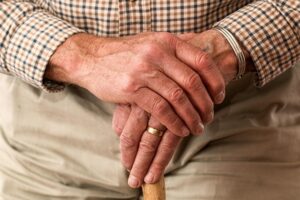Elderly Companion Services are crucial for senior care, addressing unique individual needs from physical to cognitive limitations and medical conditions. These services provide personalized support in medication management, vital signs monitoring, fall prevention, and emotional support, fostering independence while ensuring safety and peace of mind for seniors and their families.
In-home health monitoring assistance is transforming senior care, addressing growing concerns about elderly well-being. As our population ages, understanding and meeting diverse in-home monitoring needs becomes crucial. This article explores three key aspects: recognizing the significance of Elderly Companion Services, their role in enhancing quality of life through personalized care, and how these services cater to individual health requirements. By delving into these areas, we aim to illuminate effective strategies for improving senior living.
- Understanding In-Home Health Monitoring Needs
- The Role of Elderly Companion Services
- Enhancing Quality of Life Through Personalized Care
Understanding In-Home Health Monitoring Needs

In-home health monitoring assistance is a crucial service for ensuring the well-being and safety of the elderly population, who may require ongoing care while maintaining their independence. Understanding the unique needs of each individual is essential in developing effective companion services. This involves assessing physical limitations, cognitive abilities, and any specific medical conditions that could impact daily functioning. For instance, elderly individuals might need assistance with medication management, regular vital signs monitoring, or help during emergency situations.
Elderly Companion Services play a pivotal role in addressing these needs by providing trained caregivers who can offer personalized support. These services cater to the specific requirements of seniors, allowing them to age in place comfortably and securely. By implementing in-home health monitoring, families can rest assured that their loved ones are receiving competent care, promoting peace of mind and enhancing overall quality of life.
The Role of Elderly Companion Services

Elderly Companion Services play a vital role in providing in-home health monitoring assistance, ensuring the well-being and safety of aging individuals. These services offer much more than just companionship; they are a lifeline for many seniors who prefer to age in the comfort of their own homes while maintaining independence. Companions provide regular check-ins, assist with daily tasks, and monitor health indicators like blood pressure and medication intake. They also help in preventing falls by ensuring safe living environments and offer emotional support, reducing feelings of isolation.
Through conversation and engagement, Elderly Companion Services boost mental well-being and cognitive function, addressing the challenges posed by aging. They are particularly crucial for those with chronic conditions, enabling them to manage their health effectively. By combining care and companionship, these services foster a sense of security and dignity, allowing seniors to live more confidently and enjoy improved quality of life in their homes.
Enhancing Quality of Life Through Personalized Care

At-home health monitoring assistance plays a pivotal role in enhancing the quality of life for seniors, especially those who prefer or require personalized care. Elderly companion services offer more than just medical support; they provide companionship and a sense of security, addressing social isolation often experienced by the aging population.
Through tailored care plans, these services cater to individual needs, from medication reminders to assistance with daily tasks like cooking and cleaning. The focus on personalization ensures seniors receive the attention and respect they deserve, fostering independence while maintaining the comfort and safety of their homes.
In-home health monitoring assistance, driven by innovative technology and enhanced by Elderly Companion Services, plays a pivotal role in improving quality of life for seniors. By understanding individual needs and providing personalized care, these services not only address physical health concerns but also foster emotional well-being. The result is a more independent, fulfilling life within the comfort of one’s home.






